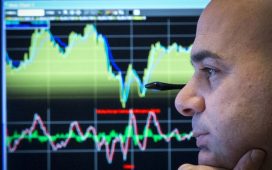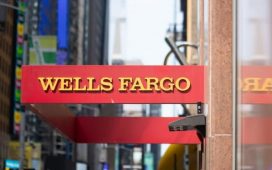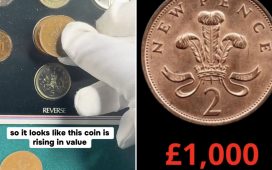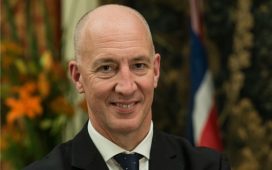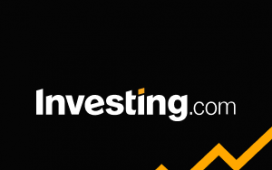Closing summary: Pound gains as Andrew Bailey strikes more cautious tone on rate cuts
The pound has gained ground in recent days as a gap appears to have opened up between the Bank of England and the Federal Reserve, strategists say.
While Fed chair Jerome Powell said “the time has come” for interest rate cuts, Bank of England governor Andrew Bailey appeared to suggest that the pace in the UK will be slower.
That has helped to lift sterling to its highest level in two years against the US dollar on Tuesday, at $1.3246 at its peak. Interest rate cuts tend to make a currency relatively less attractive for investors looking for higher-yielding assets.
Imogen Bachra, head of economics and markets strategy at NatWest Markets, a bank, said that
He adopted the same fairly cautious tone that we heard in the press conference a few weeks ago. The conclusion is that data is softening enough that the MPC appears comfortable to take its foot off the gas, but not especially quickly and probably not as far or as fast as the market is pricing. The speech itself was quite lengthy, and I think the key paragraph was buried somewhere in the middle (emphasis ours):
“In the UK case, the evidence suggests this may have worked insofar as we are seeing a lower level of inflation persistence than we expected a year ago. But, we need to be cautious because the job is not completed – we are not yet back to target on a sustained basis. Policy setting will need to remain restrictive for sufficiently long until the risks to inflation remaining sustainably around the 2% target in the medium term have dissipated further. The course will therefore be a steady one.”
Derek Halpenny, head of research at MUFG, a Japanese investment bank, said:
There was certainly a more cautious tone to the speech from Bailey in contrast to Fed Chair Powell’s speech. But that is of course understandable. There was a far larger energy price shock in Europe than in the US and the problem in Europe was more supply-, less demand-related.
In other business news today:
You can continue to follow our live coverage from around the world:
Unite union criticises Starmer’s ‘bleak vision of Britain’ as Sunak says warning of ‘painful’ budget lays ground for tax rises
Ukraine claims to have captured 100 settlements in Kursk and almost 600 Russian service personnel
In our coverage of the Middle East crisis, the Israeli military says Gaza hostage rescued in complex operation
Trump campaign attacks Harris over lack of interviews as vice-president rolls out housing plan
Thank you for following the business live blog today. Please do join me tomorrow for more of the same. JJ
Key events
Soft drinks maker Britvic is on its way to being slurped up by Danish giant Carlsberg after shareholders voted overwhelmingly for the deal.
Britvic, whose brands include J20, Robinsons and R White’s lemonade, accepted a £3.3bn offer in July after rejecting previous takeover offers from Carlsberg on the grounds that they undervalued the company.
On Tuesday the company said that all the motions it had put to shareholders had passed. The vote to sell to Carlsberg was near unanimous:
Number of votes: For: 165,809,035 (99.69%) Against: 515,673 (0.31%)
US stock markets have indeed dropped back on Tuesday morning.
Here are the opening snaps from Wall Street:
-
S&P 500 DOWN 12.08 POINTS, OR 0.22%, AT 5,604.76
-
NASDAQ DOWN 68.61 POINTS, OR 0.39%, AT 17,657.16
-
DOW JONES DOWN 21.24 POINTS, OR 0.05%, AT 41,219.28
US stock markets are due to drop when markets open in a few minutes’ time.
Futures trades indicate that the S&P 500 benchmark will fall by 0.4%, the tech-focused Nasdaq will fall 0.5%, and the Dow Jones industrial average will drop by 0.3%.
Perhaps the key thing for US equity investors this week is what happens with Nvidia. The hype around artificial intelligence has prompted one of the most astonishing sectoral booms in history. Chip designer Nvidia is the company that has gained the most – and potentially has the most to lose – if demand deflates at all.
Nvidia’s performance has been one of the key drivers of the entire S&P 500 since the release of ChatGPT, the app that first brought large language models to broader public attention.
House prices in the 20 major US metro markets rose by 6.5% year to June, according to the S&P Case-Shiller index.
That was a deceleration compared with last month, but still faster growth than economists polled by Reuters had expected.
Keir Starmer may be warning of pain to come, but the UK economy in 2024 has not been awful – at least if GDP figures are to be believed.
They may well be masking deeper, longer-term problems that could slow productivity growth, but in the short term some traders are clearly convinced of the relative attractions of sterling.
Enrique Díaz-Alvarez, chief financial risk officer at Ebury, a foreign exchange company, said:
The PMI indices of business activity for August provided further proof of the healthy state of the UK economy, with both the manufacturing and service sectors posting numbers consistent with solid and even modestly accelerating growth.
The Bank of England signalled continued cuts, but it kept its cautious tone. We think this opens up a bit of a sweet spot for sterling, as healthy growth is combined with a cautious central bank and what will likely be the highest rates of any G10 economy for at least the next few months.
Pound hits new two-year high as US awaits rate cuts
The pound has hit its strongest in more than two years against the US dollar as traders remain fixated on the pace of rate cuts from the Federal Reserve.
Sterling rose by 0.2% on Tuesday, but that was enough to push it to a new high against the US dollar. One pound bought $1.3246 at its peak, the highest since March 2022.
The pound fell to near parity with the dollar in September 2022, when Liz Truss and Kwasi Kwarteng unveiled a “mini-budget” that sparked panic in financial markets. Since then, it has recovered.
It has risen sharply over the summer in part because of stronger economic growth in the UK, but perhaps more notably because of the Federal Reserve’s signals that it will cut interest rates for the first time since the start of the coronavirus pandemic, after a cycle of tightening that pushed its federal funds rate to a range of between 5.25% and 5.5%.
Currencies tend to appreciate when the home central bank is expected to tighten monetary policy (because assets priced in that currency will yield higher returns for investors). When a central bank is loosening monetary policy – as the Fed is now – the opposite tends to happen.
Fed chair Jerome Powell gave little doubt that the central bank will cut interest rates on 18 September. In a speech last week he said: “The time has come for policy to adjust.”
Keir Starmer is readying the county for a “painful” budget – or at least is managing expectations and trying to pin the blame on the previous Conservative government.
In a speech this morning Starmer warned that the government’s forthcoming Budget will be “painful” as he asked the country to “accept short-term pain for long-term good”.
Starmer said those with the “broadest shoulders” will carry the heaviest burden. He stressed that taxes on “working people” – namely national insurance, VAT and income tax – will not be increased in the 30 October budget, but stressed that “things will get worse before they get better”.
You can follow all the reaction to the speech with Andrew Sparrow on the politics live blog:
Hobbycraft sold to retail investor Modella
Arts and crafts chain Hobbycraft has been bought by retail investor Modella Capital for an undisclosed sum. Modella said it will invest in Hobbycraft’s stores.
Private equity investor Bridgepoint put the chain up for sale in February. At the time the Sunday Times reported that Bridgepoint was considering taking a steep loss on the sale.
Bridgepoint bought Hobbycraft for £100m in 2010, but was reportedly considering a sale for between £60m and £70m. Bridgepoint had overseen investments that doubled the retailer’s store estate and also included a new warehouse in Burton, Staffordshire, according to Retail Gazette.
Modella was an investor in the UK licensing partner of fashion retailer Ted Baker, which collapsed into administration earlier this year.
Modella Capital managing director Joseph Price said:
Hobbycraft is a business with fantastic potential, boasting a highly experienced management team, truly passionate store colleagues and real authority in a sector on the high street that continues to grow and is set to do so in the future.
We look forward to accelerating the team’s growth strategy through investment in the physical footprint of the group, displaying a real commitment to bricks and mortar retail, and by enhancing the returns generated from their existing sales channels, including their growing online business.
Dominic Jordan, Hobbycraft’s chief executive, said:
We are delighted that Modella Capital is the new owner of this great business. Their deep understanding of the retail sector, shared vision and cultural values, combined with significant reserves of growth capital, make them an ideal partner.
I would also like to thank Bridgepoint for their support and collaboration over the past 14 years. Hobbycraft has evolved into a leading name in the arts and crafts sector and I am confident that, together with Modella Capital, we have a very bright future ahead of us.
Hobbycraft’s pre-tax losses rose to £16.2m for the 12 months ended 19 February, widening from £7.4m a year earlier, even as revenues rose from £203m to £211m, according to ShareCast.
Martin Sartorius, principal economist at the CBI, said:
Retail sales volumes continued to disappoint in the year to August, with contractions also being seen in the wholesale and motor trade sectors. Retailers reported increased caution regarding their investment and hiring plans, which seemed to reflect concerns about persistently weak demand conditions. Although households seem to still be feeling the pinch from the cost-of-living crisis, firms should gradually begin to see some tailwinds from consumers’ rising real incomes.
The sector will want to see measures in the budget this autumn to give certainty to firms and incentivise investment. Reforming business rates, introducing a business tax roadmap, and changing the apprenticeship levy would help businesses to deliver on the government’s ambitions to supercharge the economy.
UK retail sales declined for third month in a row says CBI data
Retail sales fell for a third month in a row, with businesses scaling back hiring and investment plans, according to data just published by the Confederation of British Industry (CBI).
The balance of retailers who said that sales declined in the year to August was 27%, the CBI said. That was better than the 43% who said sales declined in July, but hardly a vote of confidence.
Retailers are less optimistic that things will pick up. A balance of 13% of retailers said they expected the business situation to deteriorate in the next three months, compared with a balance of 2% who had said that things would improve back in May.
There is intense scrutiny on social media bosses at the moment. Telegram founder Pavel Durov is one such example: he has been arrested by France as part of investigation on allegedly illicit transactions, child sexual abuse, fraud and the refusal to communicate information to authorities.
Durov left his native Russia and the government took control of the social network, VKontakte, which Durov had made into Russia’s dominant social network. Durov then founded Telegram, which is particularly widely used in Russia and the Middle East – even though the platform is not as secure as some rivals.
You can read about the reasons for his arrest here:
Durov has won support from some notable people who say his arrest is an attack on freedom of speech. Those backers include Elon Musk, the billionaire owner of X, which rivals Telegram in some respects.
Another – perhaps more surprising – supporter: the Kremlin.
In comments reported by Reuters, a spokesperson for the Russian government said that the arrest will be seen as (checks notes) an attempt to restrict freedom of communication unless the accusations are backed up by evidence.
The Kremlin said that it hopes that Durov will be able to organise a legal defence against very serious allegations.
Some of the shine has come off European stock markets. The FTSE 100 is now only up by 0.2%.
London’s benchmark index has not been helped by weakness in the property industry. Developer Berkeley Group is the biggest faller, down 2.7%, while Persimmon, Barratt Developments, Vistry Group and Taylor Wimpey are all down by between 1.9% and 2.3%.

